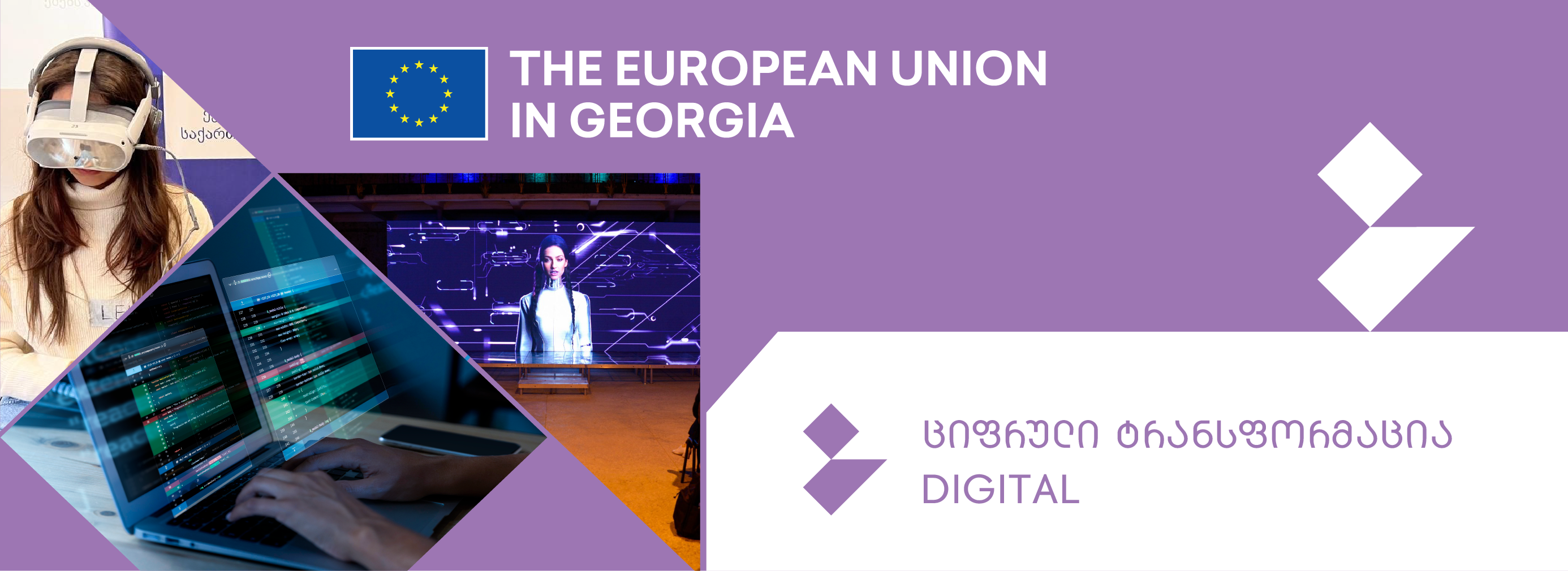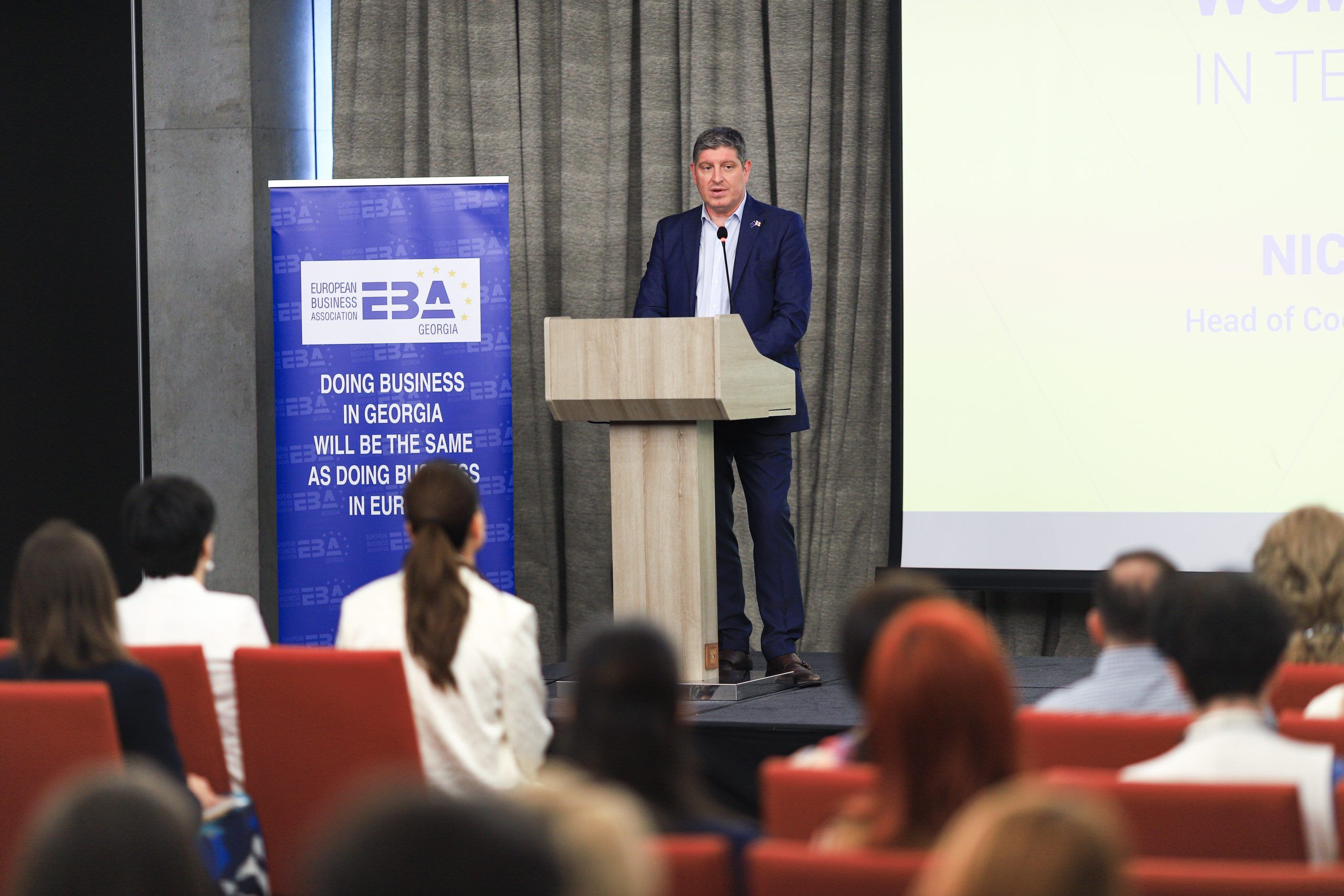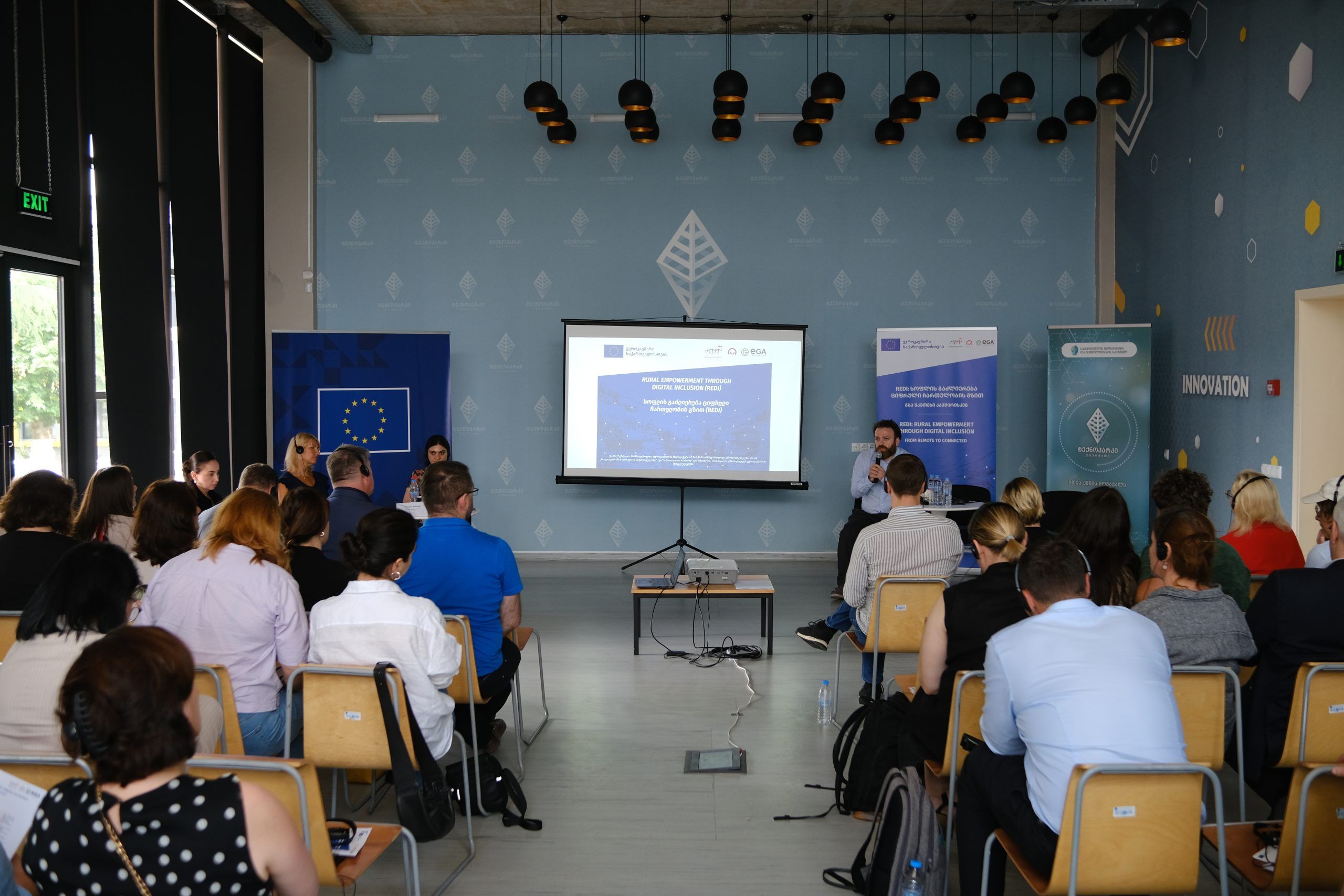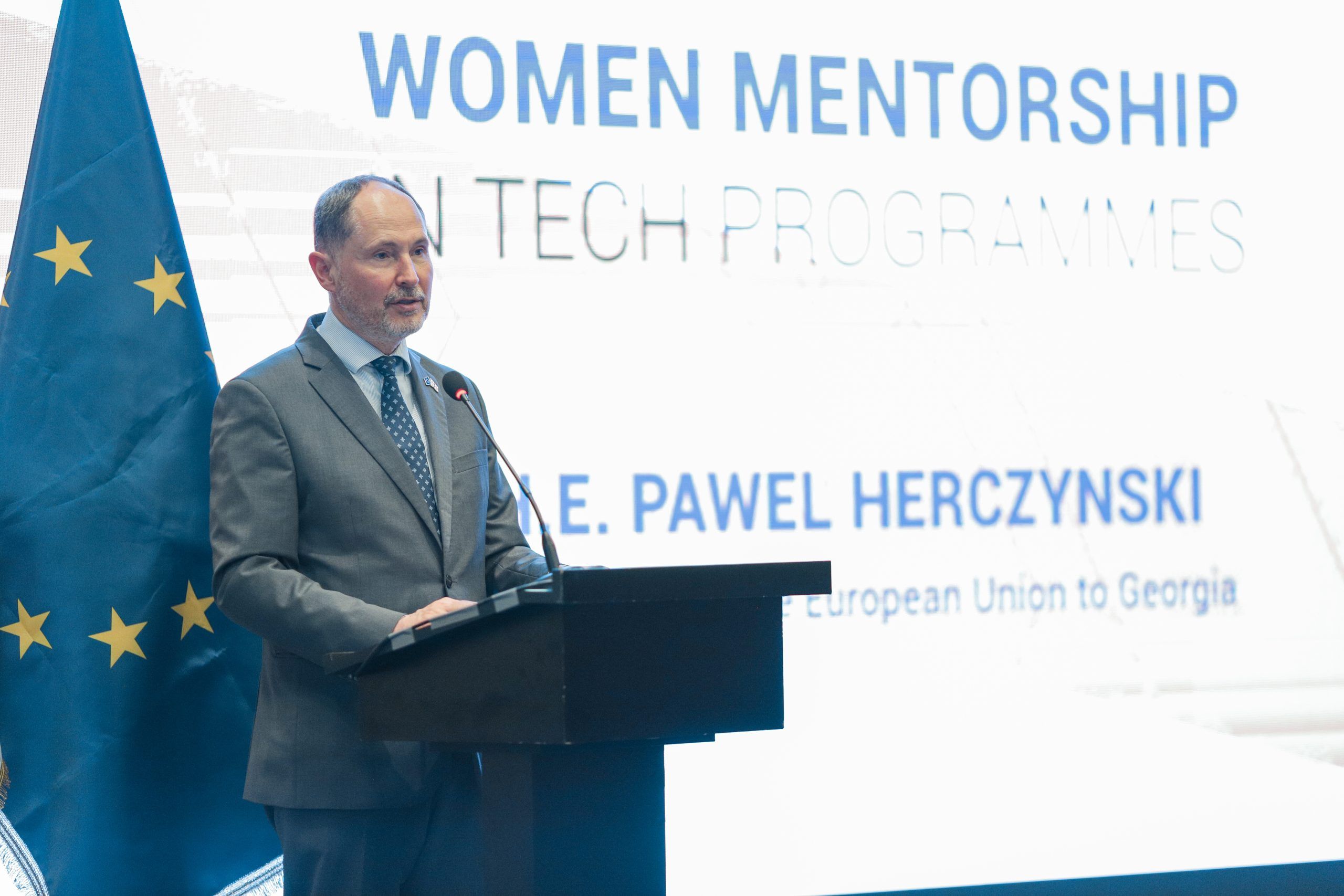
Digitalisation in Georgia is one of the priorities of the European Union. Through investments in digital infrastructure and the development of digital skills, the EU is supporting Georgia’s digital transition. For example, the EU is working together with the European Investment Bank under the EU’s Global Gateway strategy to extend a fast and reliable internet connection to 1,000 rural communities in Georgia, reaching half a million people.
The EU will reduce the digital divide by increasing access to affordable and secure broadband connectivity and ensuring the digital inclusion of the rural population in Georgia.
The EU provides training in digital skills and expands the reach of online services for the general population, as well as advanced digital skills for education and employment in the Information and Communications Technology sector for girls and women. It also ensures the infrastructure, software and standards used are compatible throughout the country.
The EU also works to create opportunities for start-ups, supporting green entrepreneurs, and the digitalisation of SMEs through tailor-made support including a grant/voucher scheme, boosting innovation and creative industries in the regions of Georgia.
Georgia is carrying out a number of digital reforms that will eliminate obstacles and barriers to pan-European online services for citizens, public administrations and businesses. This includes harmonising digital environments among the Eastern Partner countries and with the EU, and equipping the primary healthcare system with telemedicine capacities to ensure equitable access to services for people in remote areas, and contribute to progress towards Universal Health Coverage. The EU is also working on improving prevention-treatment-recovery chain and access to the equal, accessible and rights-quality mental health services.
Digital Skills Development in Guria
Rural Empowerment Through Digital Inclusion


